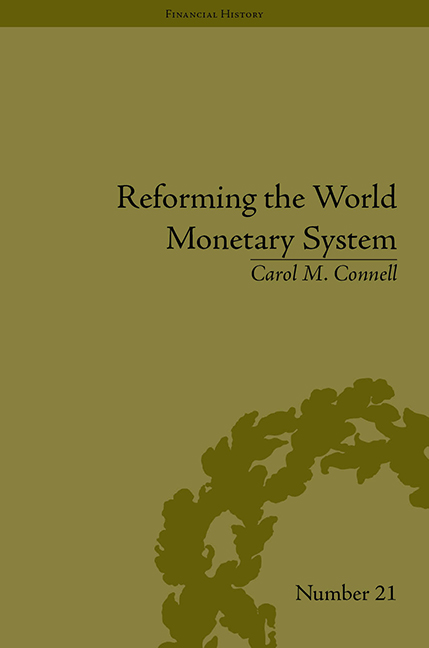Book contents
- Frontmatter
- Contents
- Acknowledgements
- List of Figures and Tables
- Introduction
- 1 A Crisis in Confidence
- 2 Fritz Machlup, his Research and Methodology
- 3 Robert Triffin and the Triffin Plan
- 4 William Fellner and the Intersection of Macro and Microeconomics
- 5 Why Economists Disagree: The Role of Framing in Consensus Building
- 6 ‘Assuring the Free World's Liquidity’ through Multiple Reserve Currencies
- 7 Milton Friedman and the Arguments for Flexible versus Fixed Exchange Rates
- 8 Collaboration with the Group of Ten
- 9 Adjustment Policies and Special Drawing Rights: Joint Meetings of Officials and Academics
- 10 From the Bellagio Group to the Bürgenstock Conferences
- 11 From the Bellagio Group and Joint Conferences of Officials and Academics to the Group of Thirty
- 12 Reassessing the Bellagio Group's Impact on International Monetary Reform
- 13 The Impact of the Bellagio Group on International Trade and Finance Scholarship from the 1960s to the Present
- Conclusions
- Notes
- Works Cited
- Index
13 - The Impact of the Bellagio Group on International Trade and Finance Scholarship from the 1960s to the Present
- Frontmatter
- Contents
- Acknowledgements
- List of Figures and Tables
- Introduction
- 1 A Crisis in Confidence
- 2 Fritz Machlup, his Research and Methodology
- 3 Robert Triffin and the Triffin Plan
- 4 William Fellner and the Intersection of Macro and Microeconomics
- 5 Why Economists Disagree: The Role of Framing in Consensus Building
- 6 ‘Assuring the Free World's Liquidity’ through Multiple Reserve Currencies
- 7 Milton Friedman and the Arguments for Flexible versus Fixed Exchange Rates
- 8 Collaboration with the Group of Ten
- 9 Adjustment Policies and Special Drawing Rights: Joint Meetings of Officials and Academics
- 10 From the Bellagio Group to the Bürgenstock Conferences
- 11 From the Bellagio Group and Joint Conferences of Officials and Academics to the Group of Thirty
- 12 Reassessing the Bellagio Group's Impact on International Monetary Reform
- 13 The Impact of the Bellagio Group on International Trade and Finance Scholarship from the 1960s to the Present
- Conclusions
- Notes
- Works Cited
- Index
Summary
Introduction
Sitting at the Bellagio Group meetings, students, teachers and colleagues were reunited – Burton Malkiel with Fritz Machlup; Peter Kenen and Harry Johnson with Gottfried Haberler and Alan C. L. Day; Alexandre Lamfalussy with Leon Dupriez and Robert Triffin; Robert Mundell with Charles Kindleberger and Harry Johnson – a tribute to the closeness of the relationships these academics had built and, if it is not going too far, the mutual pride taken in scholarship.
Recalling Machlup's criterion for membership in the Bellagio Group that economists should have achieved prominence in the field of international finance, especially those with an international reputation as writers or teachers, this chapter examines a few of the teachers and their students, protégés and close associates who were not members of the Bellagio Group. What distinguishes these relationships is the sheer effort invested in developing new talent and the range of subject areas – from economic growth to international finance to international business to public policy to corporate strategy – in which their students and advisees specialized, having begun their studies in economics. My own interest in Fritz Machlup originated in research into Machlup's student Edith Penrose and my interpretation of her work as economic growth strategy where firms and government are actors.
- Type
- Chapter
- Information
- Reforming the World Monetary SystemFritz Machlup and the Bellagio Group, pp. 201 - 214Publisher: Pickering & ChattoFirst published in: 2014



